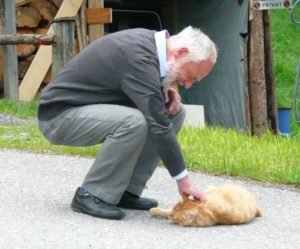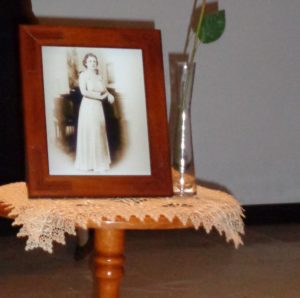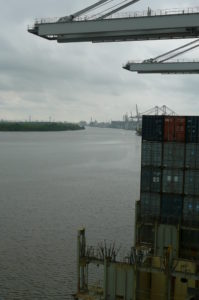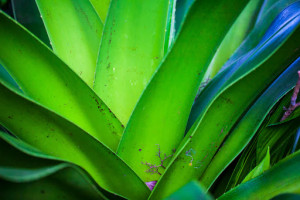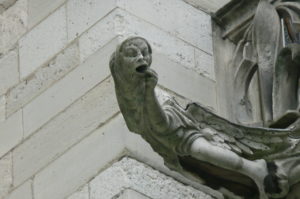From John Berger’s And Our Faces, My Heart, Brief as Photos:
Poems, even when narrative, do not resemble stories. All stories are about battles, of one kind or another, which end in victory and defeat. Everything moves towards the end, when the outcome will be known.
Poems, regardless of any outcome, cross battlefields, tending the wounded, listening to the wild monologues of the triumphant or the fearful. They bring a kind of peace. Not by anesthesia or easy reassurance, but by recognition and the promise that what has been experienced cannot disappear as if it had never been. Yet the promise is not of a monument. (Who, still on a battlefield, wants monuments?) The promise is that language has acknowledged, has given shelter, to the experience which demanded, which cried out. Poems are nearer to prayers than stories, but in poetry there is no one behind the language being prayed to. It is the language itself which has to hear and acknowledge. For the religious poet, the Word is the first attribute of God. In all poetry words are presence before they are a means of communication.
Yet poetry uses the same words, and more or less the same syntax as, say, the Annual General Report of a multinational corporation. (Corporations that prepare for their profit some of the most terrible battlefields of the modern world.) How then can poetry so transform language that, instead of simply communicating information, it listens and promises and fulfills the role of God?
That a poem may use the same words as a Company Report means no more than the fact that a lighthouse and a prison cell may be built with stones from the same quarry, joined by the same mortar. Everything depends upon the relation between the words. And the sum total of all these possible relations depends upon how the writer relates to language, not as vocabulary, not as syntax, not even as structure, but as a principal and a presence.
The poet places language beyond the reach of time: or, more accurately, the poet approaches language as if it were a place, an assembly point, where time has no finality, where time itself is encompassed and contained.
If poetry sometimes speaks of its own immortality, the claim is more far-reaching than that of the genius of a particular poet in a particular cultural history. Immortality here should be distinguished from posthumous fame. Poetry can speak of mortality because it abandons itself to language, in the belief that language embraces all experience, past, present, and future.
To speak of the promise of poetry would be misleading, for a promise projects into the future, and it is precisely the coexistence of future, present, and past that poetry proposes. A promise that applies to the present and past as well as to the future can better be called an assurance.
…
During the 18th and 19th centuries most direct protests against social injustice were in prose. They were reasoned arguments written in the belief that, given time, people would come to see reason, and that, finally, history was on the side of reason. Today this is by no means clear. The outcome is by no means guaranteed. The suffering of the present and the past is unlikely to be redeemed by a future era of universal happiness. And evil is a constant ineradicable reality. All this means that the resolution – the coming to terms with the sense to be given to life – cannot be deferred. The future cannot be trusted. The moment of truth is now. And more and more it will be poetry, rather than prose, that receives this truth. Prose is far more trusting than poetry; poetry speaks to the immediate wound.
The boon of language is not tenderness. All that it holds, it holds with exactitude and without pity, even a term of endearment; the word is impartial: the usage is all. The boon of language is that potentially it is complete, it has the potentiality of holding with words the totality of human experience – everything that has occurred and everything that may occur. It even allows space for the unspeakable. In this sense one can say of language that it is potentially the only human home, the only dwelling place that cannot be hostile to man. For prose this home is a vast territory, a country which it crosses through a network of tracks, paths, highways; for poetry this home is concentrated on a single center, a single voice, and this voice is simultaneously that of an announcement and the response to it.
One can say anything to language. This is why it is a listener, closer to us than any silence or any god. Yet it’s very openness can signify indifference (the indifference of language is continually solicited and employed in bulletins, legal records, communiques, files.) Poetry addresses language in such a way as to close this indifference and to incite this caring. How does poetry incite this caring? What is the labor of poetry?
By this I do not mean the work involved in writing a poem, but the work of the written poem itself. Every authentic poem contributes to the labor of poetry. And the task of this unceasing labor is to bring together what life has separated or violence has torn apart. Physical pain can usually be lessened or stopped only by action. All other human pain, however, is caused by one form or another of separation. And here the act of asuagement is less direct. Poetry can repair no loss but it defies the space which separates. And it does this by its continual labor of reassembling what has been scattered. Three thousand five hundred years ago an Egyptian poet was writing:
O my beloved
how sweet it is
to go down
and bathe in the pool
before your eyes
letting you see how
my drenched linen dress
marries
the beauty of my body
Come look at me.
Poetry’s impulse to use metaphor, to discover resemblance, is not to make comparisons (all comparisons as such are hierarchical) or to diminish the particularity of any event; it is to discover those correspondences of which the sum total would be proof of the individual totality of existence. To this totality poetry appeals, and its appeal is the opposite of a sentimental one; sentimentality always pleads for an exemption, for something which is divisible.
Apart from reassembling by metaphor, poetry reunites by its reach. It equates the reach of a feeling with the reach of the universe; after a certain point the type of extremity involved becomes unimportant and all that matters is its degree; by their degree alone extremities are joined. Anna Akhmatova:
I bear equally with you
the black permanent separation.
Why are you crying? Rather give me your hand,
promise to come again in a dream.
You and I are a mountain of grief.
You and I will never meet on this earth.
If only you could send me at midnight
a greeting through the stars.
To argue here that the subjective and objective are confused is to return to an empirical view which the extent of present suffering challenges; strangely enough it is to claim an unjustified privilege.
Poetry makes language care because it renders everything intimate. This intimacy is the result of the poem’s labor, the result of the bringing-together-into-intimacy of every act and noun and event and perspective to which the poem refers. There is often nothing more substantial to place against the cruelty and indifference of the world than this caring.
From where does Pain come to us?
From where does he come?
He has been the brother of our visions
From time immemorial
And the guide of our rhymes.
. . . writes the poet Nazuj ak Nak’-ika.
To break the silence of events, to speak of experience however bitter or lacerating, to put into words, is to discover the hope that these words may be heard, and that when heard, the events will be judged. This hope is of course at the origin of prayer, and prayer – as well as labor – was probably at the origin of speech itself. Of all uses of language, it is poetry that preserves most purely the memory of this origin.
Every poem that works as a poem is original and original has two meanings: it means a return to the origin, the first which engendered everything that followed; and it means that which has never occurred before. In poetry, and in poetry alone, the two senses are united in such a way that they are no longer contradictory.
Nevertheless poems are not simple prayers. Even a religious poem is not exclusively and uniquely addressed to God. Poetry is addressed to language itself. In a lamentation, words lament loss to their language. Poetry is addressed to language in a comparable but wider way.
To put into words is to find the hope that the words will be heard and the events they describe judged. Judged by God or judged by history. Either way the judgment is distant yet the language, which is immediate and which is sometimes wrongly thought of as being only a means, the language offers obstinately and mysteriously, its own judgment when it is addressed as poetry. This judgment is distinct from that of any moral code, yet it promises, within its acknowledgment of what it has heard, a distinction between good and evil – as though language itself had been created to preserve just that distinction!

Photo by SSH

